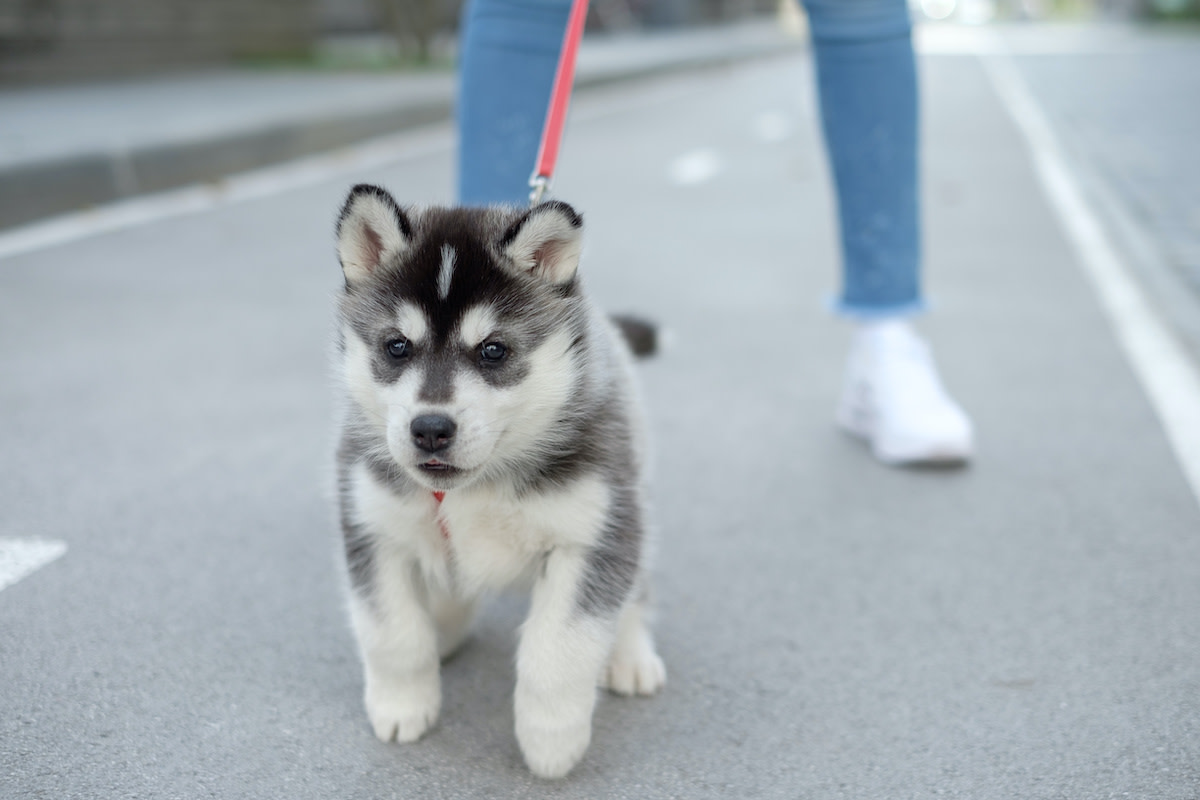When Can I Take My Puppy for a Walk? 4 Tips for Puppy Walks
Written by MasterClass
Last updated: Jun 1, 2022 • 2 min read
As a puppy owners, you might want to start regular walks with your new pet, but there are several factors to consider before taking your puppy out into the wide world, including vaccination status. Learn more about when you can take your puppy for a walk.
Learn From the Best
Why Should Puppies Avoid Public Places?
Puppies should avoid public places until they receive a complete set of vaccinations. A young puppy’s immune system is still in development during its first five months of life, making them susceptible to viruses like canine parvovirus (or parvo), canine distemper, and tracheobronchitis (also known as kennel cough). Puppies who come in contact with infected dogs or unvaccinated dogs in public places like dog parks run the risk of contracting these dangerous and potentially fatal illnesses.
When Can I Take My Puppy for a Walk?
Dog owners should wait to take their puppy for its first walk until they receive their full vaccination series. The first round of vaccinations typically starts at six to eight weeks of age, with the second series following three weeks later. The vaccination schedule continues at three-week intervals until completion, typically when the puppy is four months old. A good rule of thumb for puppy parents is to wait an additional ten to fourteen days after their final puppy vaccination before taking their pet on a walk in the outside world for the first time.
4 Tips Before Taking a Puppy Out on Its First Walk
Here are tips to follow as you prepare your puppy for its first walk:
- 1. Avoid giving your puppy too much exercise. Though a new puppy often has very high energy levels, they can get too much exercise. Over-exercising can cause serious damage to your pet’s developing joints and bones. The amount of exercise needed varies by dog breed and age; large-breed dogs such as retrievers or Great Danes have more stamina than medium breeds like bulldogs, and a five-month-old puppy can play longer than a six-week-old puppy. Ask your veterinarian or puppy breeder about the right amount of exercise for your pet.
- 2. Provide safe socialization. In the first three months of your puppy’s life, socialization is crucial. A puppy needs exposure to new experiences, including people, places, and new dogs to avoid behavioral problems. You can begin puppy socialization before a completed vaccination series at puppy training classes. These are a great place for young puppies to meet other dogs, or you can introduce your puppy to fully vaccinated, friendly dogs in a safe location like your own backyard.
- 3. Start slow in all cases. Moderation is key, so start with short walks and build up to longer walks over time. For first-time walks, provide five minutes of exercise for each month of age, and remember to walk your puppy at least twice a day. If your dog lies down during the walk, it’s telling you it’s tired, so take the puppy home and let it rest.
- 4. Try different exercises. Puppies crave mental stimulation; different activities prevent injuries from repetitive exercise and give them plenty of opportunities to socialize and experience new environments. Unvaccinated puppies can play fetch, hide-and-seek, and tug-of-war indoors or in the yard, in addition to talking short walks and breaks for potty training. Vaccinated puppies can go on outings to different public spaces, trips on walking trails, or even go swimming.
Want to Learn More About Training the Goodest Boy or Girl?
Your dream of having a dog who understands words like “sit,” “stay,” “down,” and—crucially— “no” is just a MasterClass Annual Membership away. The only things you’ll need to train up a well-behaved pup are your laptop, a big bag of treats, and our exclusive instructional videos from superstar animal trainer Brandon McMillan.
